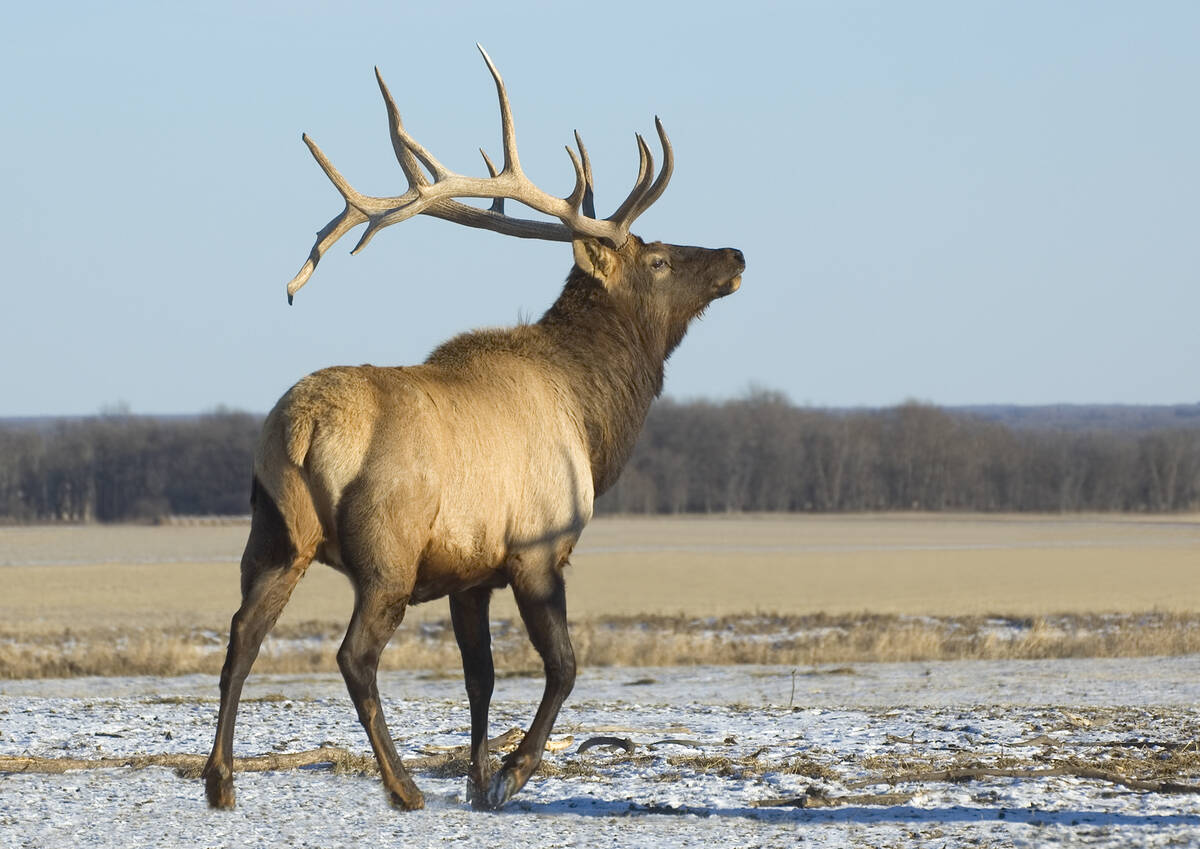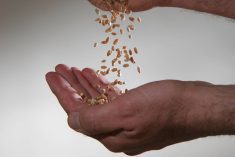Federal government consultations on ways to encourage more investment in plant breeding will start this fall, says Todd Hyra, president of the Canadian Seed Trade Association (CSTA) and SeCan’s business manager for Western Canada.
“It’s really about how to generate investment for plant breeders, incent investment by new innovators that want to come to Canada and to keep the brightest and best here,” he said in an interview Oct. 5.
After almost a decade of discussions, seed growers and companies have come up with a couple of options for farmers and the government to consider, Hyra said.
Read Also

Manitoba Beef Producers take aim at elk surge, feed losses from wildlife
Resolutions at last month’s Manitoba Beef Producers meeting seek help to rein in elk and deer populations, expand fencing supports and improve compensation for wildlife damage.
The consultations will start next month and be held in Winnipeg, Saskatoon, Edmonton and Ottawa, Hyra said. Dates and venues are still being determined.
Currently in most cases farmers pay plant breeders a royalty when they buy pedigreed seed, but total returns aren’t enough to encourage the level of plant breeding required to keep Canadian farmers competitive, he said. Two other options are being considered.
One is for farmers to pay breeders for their varieties when they deliver grain to buyers. That’s called an end point royalty.
The other is for farmers to pay every year for the varieties they have purchased and intend to grow again from saved seed. That’s called a trailing contract.
“Most other countries in the world are using one of those forms now to incent investment,” Hyra said.
Properly rewarding cereal breeders has been the biggest challenge because most varieties are open pollinated. That means after a farmer buys a new variety he or she can save and plant their own seed for many years. If they aren’t buying new pedigreed seed, the breeder isn’t getting any additional revenue.
Seeds harvested from hybrid crops don’t reproduce well, so farmers who grow hybrid crops such as canola and corn must buy new seed every year to maintain productivity, earning plant breeders more money.
Why not just charge higher royalties when a farmer buys a new variety? Pedigreed seed growers don’t want to charge their customers more, Hyra said.
“There are some customers who buy pedigreed seed on a more regular basis,” he said. “They’re paying more for research and development. Some of them may farm save a variety for many, many years and they’re getting the benefit of those genetics over an extended period of time and not paying the same as their neighbour who is using them once and then replenishing their seed again.”
Whatever changes are made, they need to also benefit farmers, Canadian Seed Growers’ Association president Jonathan Nyborg said in a news release, issued by the Seed Synergy Partners.
“Seed growers recognize that any changes to the system intended to generate additional funds for plant breeding in Canada must benefit breeders and generate value for producers of all crop kinds by building on the strengths of the current pedigreed seed system,” he said. “We believe that additional support for Canadian plant breeders will lead to increased access to innovative varieties for seed growers and for our customers, and that it is essential for Canadian agriculture to thrive and continue to contribute to the well-being of Canadians.”
In addition to the seed growers and CSTA, the other Seed Synergy Partners are the Canadian Plant Technology Agency, the Canadian Seed Institute, the Commercial Seed Analysts Association of Canada and CropLife Canada.
The seed industry is leaning towards the trailing contract option for several reasons, including that it works for feed crops that lack a means for collecting royalties because they are fed locally, providing no incentive for breeders to develop them.
An end point royalty could see farmers paying breeders twice — something seed growers want to avoid. Farmers might pay when seed is purchased and then when the resulting crop is sold.
A rebate system would be complex and getting grain companies to collect royalties would add cost.
The National Farmers Union (NFU) opposes both options because it will cost farmers more and potentially end the savings resulting from farm-saved seed, which has been the basis of agriculture since farming began 10,000 years ago.
The NFU contends the federal government should fund plant breeding as it traditionally did. Ottawa’s funding for breeding has been declining for years.
“If we can hold the government’s investment to where it is now I think we’re doing well,” Hyra said. “I don’t think we can push them for more. In this day’s environment I don’t think we’re going to get any more.”
The NFU also says what the seed trade is advocating will just enrich big multinational seed companies. Hyra disagrees.
“We want to make sure that the big companies are being incented to invest their time and resources here, but this is every bit as much, or probably more, about the small- and medium-size companies that don’t have resources,” he said.
“We need small- and medium-size companies and public breeding programs — University of Saskatchewan, Agriculture Canada — those breeders need that resource and need to be able to see that investment as well.”
There are many small- and medium-size, family-owned seed companies in Europe where there are financial incentives to operate, Hyra said.
“They are being very successful and we don’t have that here,” he said.
“It’s these types of systems that will encourage them to invest here.”















